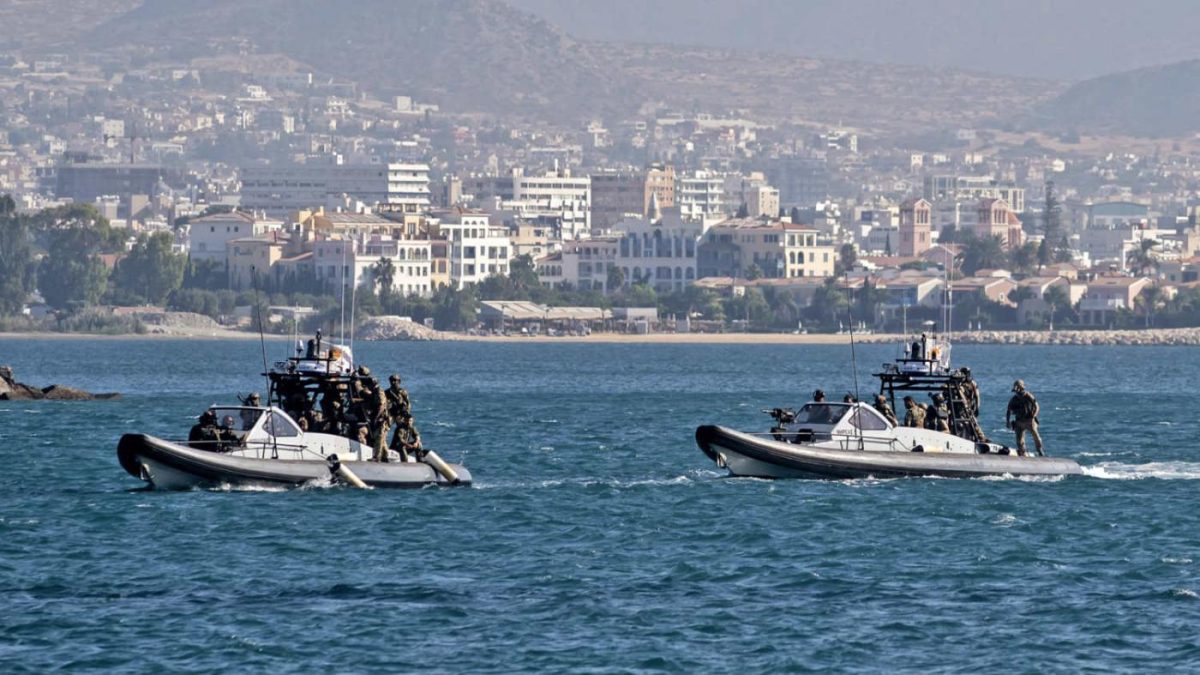The USS Arleigh Burke, a guided-missile destroyer, arrived in Limassol, Cyprus, for a scheduled visit on Tuesday.
The Turkish foreign ministry issued a statement critiquing the move: “The steps taken in the region by the US which disrupt the balance at the expense of the Turkish Cypriot side damage [United State’s] long-standing neutral position.”
The statement is the second time in less than two months that Turkey has criticised the US for docking warships on the ethnically divided island. In April, the nuclear-powered submarine USS San Juan landed in the port of Limassol, prompting a similar rebuke from Ankara.
Turkey and Greece – Cyprus’ closest ally – are enmeshed in a series of disputes over maritime rights, the sovereignty of Aegean islands, natural gas and airspace boundaries. Greece warned in September that a Ukraine-style war could erupt with Turkey, but ties thawed with goodwill diplomacy following a deadly earthquake in Turkey and a train accident in Greece.
Ankara’s warning over Cyprus, however, underlines how the region remains susceptible to flare-ups.
The island has long been a flashpoint in Eastern Mediterranean tensions. Ankara invaded in 1974 in the name of protecting the Turkish minority after a failed coup attempted to unite the island with Greece. Today, Cyprus is divided between the internationally recognised government in the south and a Turkish government in the north recognised only by Ankara.
Turkey, along with Britain and Greece, is a guarantor power of Cyprus under a treaty that granted the island its independence from British colonial rule in 1960. Previous attempts to resolve the Cyprus dispute have failed, most recently at a 2017 conference in Crans Montana, Switzerland.
The spat has prevented Cyprus from tapping lucrative natural gas deposits in its maritime zone, which has seen renewed interest as a result of the war in Ukraine.
The US has moved closer to both Greece and Cyprus amid the war, while Turkey has struck a path independent of Washington.
On Wednesday, President Recep Tayyip Erdogan announced a two-month extension of a UN-backed deal under which Ukraine grain ships can cross the Black Sea to global markets. But Turkey has refused to sign on to western sanctions against Moscow and is looking to position itself as a hub for Russian gas.
Ankara has also complained about the US’s use of Greek ports in Western Thrace, a Greek region bordering Turkey.
Greece and Cyprus’ closeness to Washington is also impacting defence ties. Athens is inching towards acquiring F-35s from the US, while Turkey was ousted from the advanced fighter jet programme over its purchase of the Russian S-400 missile system.
In September, Erdogan stated that he would increase troop numbers in Northern Cyprus after the US fully lifted its arms embargo on the internationally recognised government. Turkey maintains about 40,000 troops in the north.
